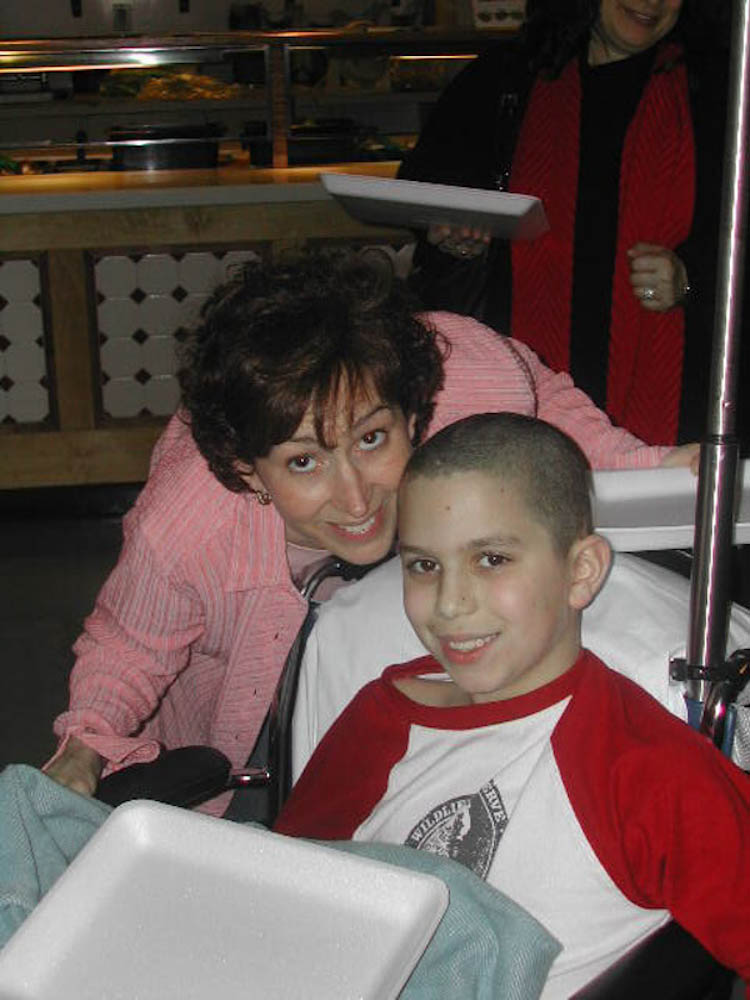By Jeremy Pivor
I have been living with cancer for half my life: first as a 12-year-old boy, and now as a 24-year-old young adult. In the 12 years since I was diagnosed with a brain tumor, I have been cared for at Dana-Farber, where I am currently receiving treatment for an inoperable recurrence. Despite 11 years recovering and living my dreams of traveling and studying around the world, when I walk through the halls of Dana-Farber, I can’t help but feel like I have come full circle, as if nothing has changed. In reality, my tumor may be the same, but dealing with cancer as a child and a young adult could not be more different.

Growing up, the Jimmy Fund Clinic was a place of comfort. I was surrounded by peers and adults who understood what it was like to be a kid with cancer. But, like being placed at the kids table well past the age you consider yourself a “kid,” when I was diagnosed with my recurrence at 23, I didn’t fit in anymore, so I transitioned to the adult clinic. Despite making that change I am still the odd man out, now the youngest person in the waiting room. In fact, most people assume I am a patient’s child, rather than a patient myself. As a young adult, I fell into the isolating space where I didn’t see others my age going through similar circumstances.
This feeling wasn’t limited to the waiting room. As my experience progressed, I realized having cancer as a young adult comes with many unique challenges I didn’t face as a child, including reconciling my evolving identity, balancing school and work with treatment, handling relationships with family and friends, and dealing with issues of fertility and intimacy. Young adulthood is a time of rapid exploration and becoming independent. Not only does cancer disrupt this process, but the associated uncertainty adds an additional, difficult dimension to young adulthood.
Read more:
In the pediatric clinic, I had an entire team of people to help me through the medical and emotional aspects of my diagnosis. Despite the many unique challenges young adults face, it was difficult at first to find such personalized care. No one expects young adults to get cancer, so few consider the ways cancer can disrupt a young adult’s life. In adult care, it has been up to me to advocate for myself to get the support I need. From my experience, pediatric care was like getting chocolate at a specialty shop, whereas adult care is like buying the same chocolate at a grocery store. The quality of the chocolate – or medical care – is the same; the difference is in how much help you get navigating the process. As an adult patient, I don’t need the same specialized attention found in pediatric settings, but I do, as a young person, need help navigating what this diagnosis means for the rest of my life.

I have been fortunate to find this assistance from Dana-Farber’s Young Adult Program (YAP), one of the few programs in the country focused on young adults with cancer. YAP has been crucial in helping me find a sense of belonging in a difficult clinical setting. From one-on-one meetings to support group sessions and other events, YAP addresses cancer’s impact not only on my body, but on my entire life. Most importantly, YAP has introduced me to others going through similar experiences.
Even though everyone’s medical situation may be different, as young adults we all face similar emotional challenges. It is this shared experience, similar to what I felt as a child in the Jimmy Fund Clinic, that has helped me move out of the isolating space between pediatric and adult care, and forward in life beyond cancer. In many ways, YAP is a specialty chocolate stand within the grocery store of adult cancer care, helping young adults like me find the best support.

A very good article. I forwarded it to my son Matt today. He was just diagnosed with Ewing’s Sarcoma at 20 yrs. I’m sure he will find it helpful and I will encourage him to take advantage of YAP. Thank you for taking the time to write!
Dear Steve–
We are so sorry to hear about your son’s recent diagnosis. Wishing him and the rest of your family all the best.
Thank you for reading & connecting with us.